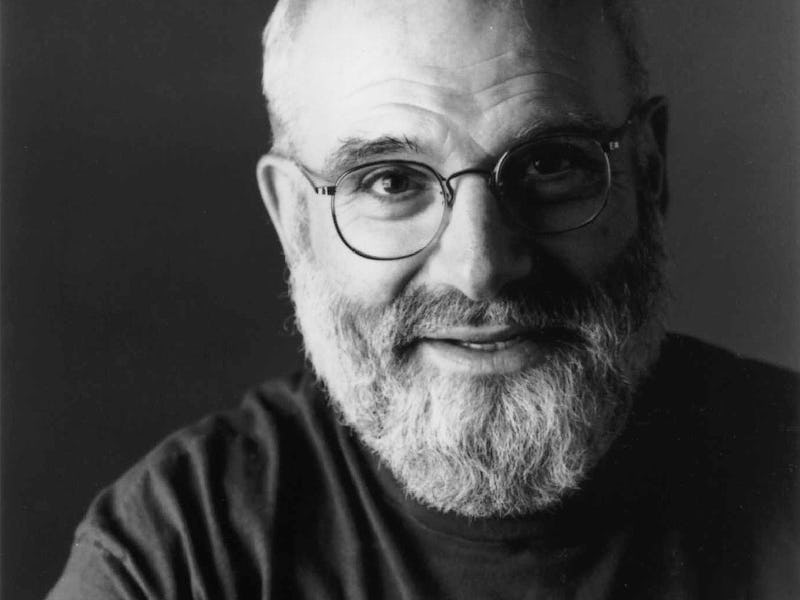Neurologist and Writer Oliver Sacks Dies at 82
A brilliant man who took us on journeys to where the brain got weird.

Dr. Oliver Sacks, author of The Man Who Mistook His Wife for a Hat, An Anthropologist on Mars, and half a dozen other acclaimed medical nonfiction books, will leave a lasting mark on the popular view of human neurology.
Sacks was diagnosed with terminal melanoma, as he wrote in the New York Times in February, and died on Sunday at age 82. Comparing his last days to those of a favorite philosopher and proclaimed moderation enthusiast, David Hume, Sacks’s diagnosis did not diminish the neurologist’s gusto:
I cannot say (nor would anyone who knows me say) that I am a man of mild dispositions. On the contrary, I am a man of vehement disposition, with violent enthusiasms, and extreme immoderation in all my passions.
He brought this intensity to his writing, telling the stories of twins with autism who had trouble with simple addition but could preternaturally discern whether a number was prime, or the titular man who mistook his wife for a hat. As Sacks tells it: “He reached out his hand, and took hold of his wife’s head, tried to lift it off, to put it on. He had apparently mistaken his wife for a hat! His wife looked as if she was used to such things.”
Outside of his work, Sacks was an avid swimmer — a mile a day even in his 80s — and as a younger man held for a time a California bodybuilding record for squatting 600 pounds.
In a fantastic profile at Wired, Steve Silberman lays out the way Sacks’s methods hearkened to an earlier time:
By restoring narrative to a central place in the practice of medicine, Sacks has regrafted his profession to its roots. Before the science of medicine thought of itself as a science, at the crux of the healing arts was an exchange of stories. The patient related a confusing odyssey of symptoms to the doctor, who interpreted the tale and recast it as a course of treatment. The compiling of detailed case histories was considered an indispensable tool of physicians from the time of Hippocrates. It fell into disrepute in the 20th century, as lab tests replaced time-consuming observation, merely “anecdotal” evidence was dismissed in favor of generalizable data, and the house call was rendered quaintly obsolete.
Sacks was also not without his critics, who occasionally raised doubts about the veracity of his stories and levied claims that he was a physician who, when cast in a particularly harsh light, “mistook his patients for a literary career.” But as Silberman points out, Sacks didn’t simply put his patients with strange neurological symptoms on display for shock value. P. T. Barnum he was not. Though his books frankly explore the bizarre conditions of his patients, Sacks brought them to life on the page with sympathy, linking human subjects to human readers.